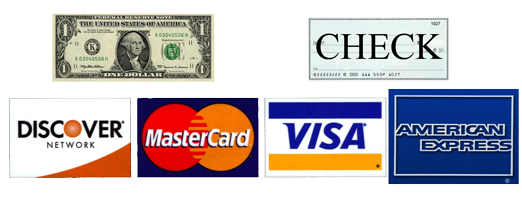Overview:
There’s a long-standing myth in the world of locks and security that one key can open everything. The so-called “master key” that grants access to every lock in a building or city has captivated our imaginations for centuries. But here’s the reality: this is just a myth. In this blog post, we’ll debunk the myth of the all-powerful master key and explain why it doesn’t work the way people think it does. Along the way, we’ll provide real-life examples and scenarios where master keys exist (and work), as well as show you why the world of locks is much more complex than a single universal key.
The Myth of the Master Key
When people think of a “master key,” they often imagine a single, magical key that can open every lock in existence. This idea has been popularized in movies, books, and even real-world urban legends. It conjures up images of secret vaults, hidden treasures, and clandestine operations. But the truth is, no such all-powerful key exists for everyday life.
While it’s true that master keys do exist, they work in a very specific context, and their power is not as all-encompassing as the myth suggests. A master key can open a series of locks within a particular system, such as locks within an office building or hotel. However, these systems are highly controlled, and the “master” function is limited to those locks within that particular network.
What is a Master Key System?
A master key system is a hierarchical key system that allows different keys to open different locks, with a single master key able to open multiple locks. For example, a hotel might have a master key that can open every room’s door, while each room has its own unique key. This system is helpful for managing multiple locks while still maintaining a level of security and access control. However, even within this system, the master key is not a universal solution to all locks.
Types of Master Key Systems:
-
Grand Master Key: A key that opens a group of locks within a particular network (e.g., all the rooms in a hotel).
-
Master Key: This key works within a smaller subset of locks, such as all the locks within a particular department or section of a building.
-
Sub-Master Key: A key designed to open only a specific subset of locks, often used by department heads or supervisors.
Why the Master Key Myth Is a Fallacy
Here’s the big problem with the “master key to the city” myth: it assumes that a single key could open every type of lock in every scenario. In reality, the world of locks is much more complicated. There are different types of locks, each with its own unique design and mechanism.
Lock Types and Their Limitations
-
Pin Tumbler Locks – The most common type of lock, often found in residential homes. Pin tumbler locks require a specific key that matches the pin configuration inside the lock. A master key might open multiple locks of the same system, but it cannot open every lock with a different pin configuration.
-
Deadbolt Locks – These are commonly found on exterior doors for added security. Deadbolts require a specific key to unlock, and there’s no “master key” for deadbolts unless they are part of a larger master key system.
-
Electronic Locks – Smart locks and keyless entry systems have become increasingly common. These locks use digital codes, fingerprints, or biometrics to unlock, so a physical “master key” simply doesn’t work.
-
Combination Locks – Often used for safes or lockers, combination locks require a specific sequence of numbers. Even within a system of combination locks, there is no universal master key.
Real-Life Examples of Master Key Systems
-
Hotel Room Keys: As mentioned earlier, hotels use master key systems to allow staff to access all rooms. This is an example where a master key is useful, but it’s not the “master key” to every lock. It only works within that hotel’s system.
-
Corporate Buildings: In office buildings with multiple floors and departments, a master key might be issued to the building manager to access every office. Again, this works within a controlled environment and cannot open other types of locks outside the building.
-
Schools: Some schools use master key systems to allow administrators to open classrooms or office doors. But, these keys can only access locks within the school district’s system.
Why a Master Key System Can’t Open Everything
Master keys are designed to give specific people (like property managers, building supervisors, or hotel staff) access to certain areas. However, they cannot open all locks. Here’s why:
-
Different Manufacturers and Lock Types: A master key is often designed to work with specific locks from a particular manufacturer or system. This means that locks from other manufacturers or different security systems won’t be accessible with the same key.
-
Security Protocols: A master key only works in controlled environments where each lock and key are part of a designed system. Locks outside of that system won’t be operable with the same key.
-
Advanced Security Features: High-security locks, such as those used in safes, high-security facilities, or for restricted access, are not designed to work with generic or master keys. These locks often feature specialized technology (e.g., biometric, digital keypads) that prevent unauthorized access.
-
Legal Restrictions: In some cases, even if a master key system exists, legal protections and privacy regulations prevent anyone from gaining unauthorized access, including the so-called “master key.”
When Does a Master Key System Work?
There are some cases where a master key can open every door—though only within a specific system.
-
Multi-Unit Buildings (e.g., Apartments or Hotels): A building management team may use a master key system for convenience, allowing them to access multiple units with a single key, but that system is limited to that building or complex.
-
Large Office Buildings: Property managers or facilities personnel often use master key systems to maintain control and ease of access to different areas within a building.
-
Keyed Alike Systems: In some scenarios, several locks can be “keyed alike,” meaning they all use the same key. This can be done in a commercial or residential environment but only works for locks specifically designed this way.
The Dangers of the “Master Key” Myth
Believing in the “master key” myth can lead to dangerous assumptions about security. Here are a few risks:
-
False Sense of Security: Thinking that one key can solve all access issues can lead people to overlook the importance of securing their locks, especially when different levels of access control are needed.
-
Increased Vulnerability: If someone believes in the master key fallacy, they may not take proper precautions when securing their property. This could lead to weak security systems that are vulnerable to unauthorized access.
-
Misleading Expectations: Some locksmiths or security companies may prey on these misconceptions, offering “master key solutions” that don’t actually provide universal access.
Conclusion: Trusting the Experts
At the end of the day, there’s no magic “master key” that can open every lock. While master key systems certainly have their place in specific environments, they aren’t a catch-all solution. Understanding the limitations of these systems can help you make better decisions when it comes to securing your property.
If you’re in need of real, professional security solutions, don’t fall for the myth of the master key. A qualified locksmith, like Jim, can help you choose the best system for your needs—one that prioritizes security, functionality, and peace of mind. Call (201) 935-8006

